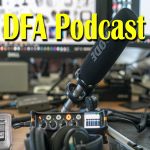Our latest weekly market update.
Last week was quite a week, with the start driving markets higher in an AI induced hallucination, before the reality of rates higher for longer hit home, thanks to Federal Reserve Chairman Jerome Powell’s testimony in which he signaled more interest rate hikes ahead but vowed the central bank would proceed with caution. And the Bank of England lifted 0.5% to 5%, a 15 year high, as recession talk came to the fore, supported by a range of weak PMI’s.
The 10-Year-2-Year curve is burrowing southward, perhaps for a test of the inversion low earlier this year. While people tend to worry that a yield curve inversion is a trigger to economic recession, it is actually the steepening that follows that usually brings the trouble, whether it be inflationary or deflationary.
Japanese stocks slide after inflation grows more than expected Japan’s Nikkei 225 index slid 1.7%, while the TOPIX fell 1.5% after data showed consumer price index inflation grew more than expected in the 12 months to May. While core inflation read lower from the prior month, a reading that showed inflation excluding food and fuel costs surged to a 42-year high in May, indicating that underlying Japanese inflation remained high. The trend points to mounting pressure on the Bank of Japan to tighten policy, even as the bank reiterated that it has no plans to alter its ultra-loose policy in the near future.
In Australia, a sharemarket sell-off gathered pace through Friday, erasing a week’s worth of gains for the S&P/ASX 200, as energy producers headlined the falls on a softening oil price. The benchmark index fell 1.3 per cent, to 7099.2, extending the day-earlier 1.6 per cent decline and leaving the market at its lowest since it closed at 7091.3 points on May 31.
The worst-performing sector was energy . The real estate and banking sectors also declined as investors worried about that the strength of the economy as the Reserve Bank of Australia lifts interest rates higher.
“The risk of recession in Australia is now very high,” said Shane Oliver, the chief economist at AMP. “Our assessment remains that the RBA has already done enough to slow the economy and bring inflation back to target, and we are seeing clear evidence of slowing demand in terms of falling real retail sales, falling building approvals, slowing plans for growth in business investment, slowing GDP growth and early indications of a slowing jobs market.”
The outperformance of Bitcoin recently has been tied in part to a filing last week from BlackRock, the world’s largest asset manager, seeking approval for a spot-bitcoin ETF. If approved, it would be the first of its kind, and many experts believe it would increase accessibility and create demand for the asset. But So far dozens of attempts have been made to get a spot-bitcoin ETF approved but all have failed, and the SEC has not shown signs yet that it will back down.
http://www.martinnorth.com/
Go to the Walk The World Universe at https://walktheworld.com.au/

